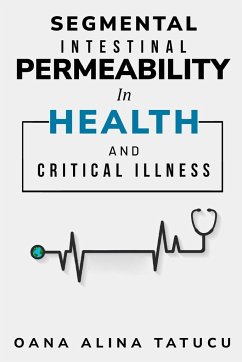The role of the gastrointestinal (GI) tract in the maintenance of health and prevention of disease has been a concept proposed for thousands of years. However, until recently our understanding of the role of the GI tract was predominantly limited to digestion and absorption. The importance of the intestinal barrier function of the GI tract was not well understood due to limitations in medical technology, resulting in less research being conducted in this area. Increased intestinal permeability (IP), referred to as "leaky gut" in lay terms, was considered a pseudoscience. Until recently, clinicians referring to increased IP as a real occurrence would have had their credibility questioned [1, 2]. Today, the importance of the GI tract in the development and management of intestinal and extra-intestinal conditions is receiving significant interest from researchers, clinicians and the general population. Increased IP is now recognised as a real phenomenon that contributes to the development of conditions ranging from inflammatory bowel disease to non-alcoholic fatty liver disease, with research in the area rapidly growing and evolving [2, 3].







